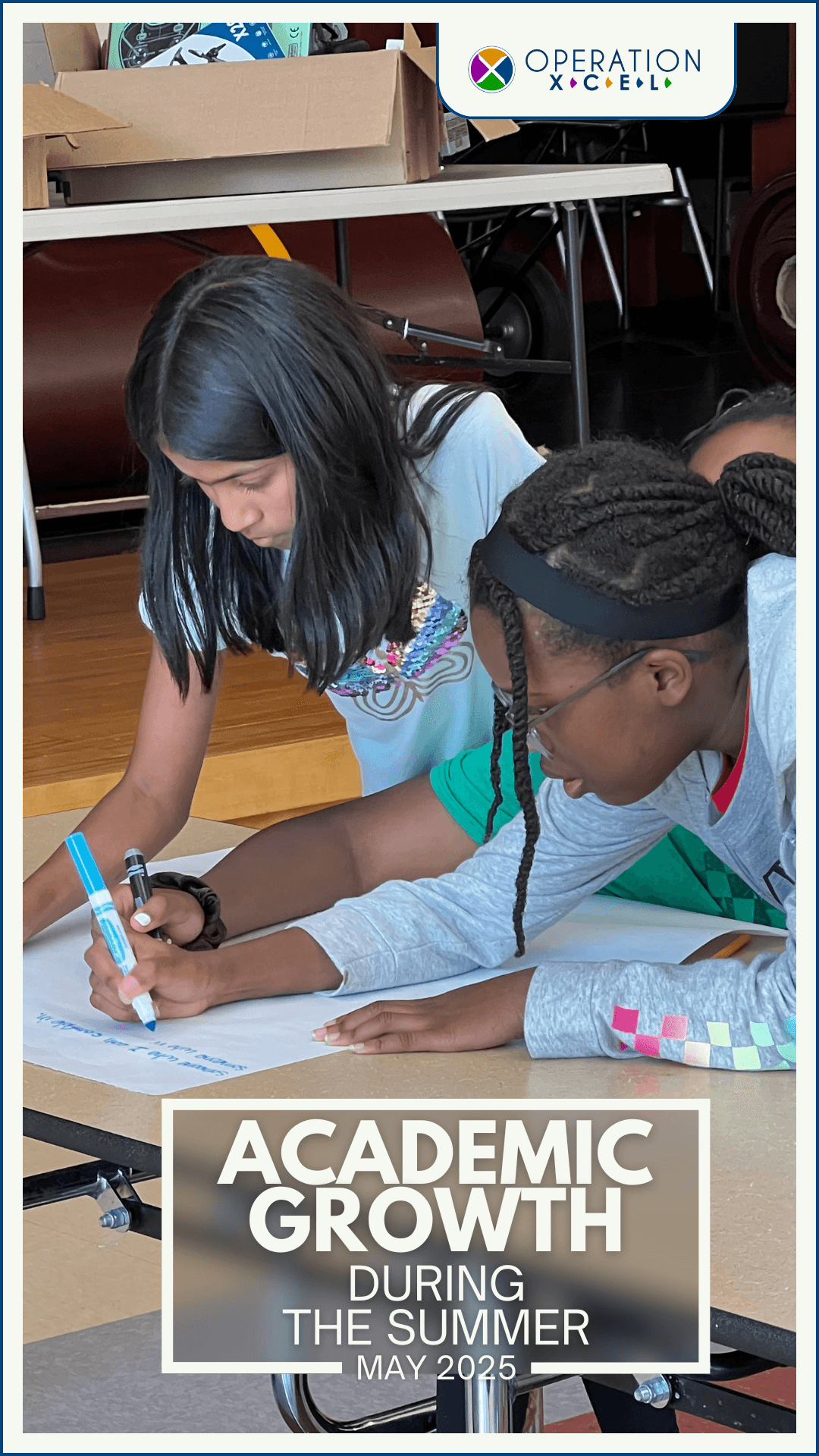
Summer break is often viewed as a time for relaxation and fun, but it also presents a unique challenge for families with limited resources: ensuring their children retain the knowledge they gained during the previous school year. Below are some strategies that can help families keep their children focused on learning throughout the summer months.
Utilize Free Community Resources
Many communities offer free or low-cost resources that can help keep children engaged in learning. Libraries often host summer reading programs that encourage children to explore new books and develop a lifelong love of reading (Neuman & Celano, 2012). Additionally, museums, parks, and cultural centers may provide educational events and workshops that can stimulate a child's curiosity and knowledge.
Engage in Educational Activities at Home
Families can create a learning-rich environment at home by incorporating educational activities into daily routines. Simple approaches such as setting aside time for reading, practicing math through cooking measurements, or exploring science concepts during nature hikes can make learning fun and relevant to everyday life (Berkowitz et al., 2011). Online resources and educational apps can also be powerful tools, offering interactive content that covers a variety of subjects (Hirsh-Pasek et al., 2015).
Establish a Regular Routine
Consistency is key to maintaining a child's focus on learning during the summer months. Establishing a routine that includes time for academic activities, physical exercise, and creative play can help children structure their days and balance work with play. This routine can help prevent summer learning loss (Summer Slide) and keep children ready for the upcoming school year (Cooper et al., 1996).
Encourage Social Learning Opportunities
Social interactions can significantly enhance a child's learning experience. Encouraging children to participate in group activities, whether through clubs, sports teams, or community events, can provide them with opportunities to learn from peers, develop teamwork skills, and build social confidence (Wentzel & Caldwell, 1997). Volunteer activities, such as those organized by local colleges and universities, can also be beneficial, offering children the chance to engage in meaningful projects while learning valuable life skills (Astin & Sax, 1998).
Support a Growth Mindset
Promoting a growth mindset in children is crucial for their academic success and overall development. Families can encourage children to view challenges as opportunities for growth rather than obstacles. Praising effort and perseverance instead of innate ability helps children develop resilience and a positive attitude toward learning (Dweck, 2006).
Leverage Online Learning Platforms
With the advent of technology, online learning platforms have become an essential resource for continued education. Websites such as Khan Academy, Coursera, and various educational channels on YouTube offer free courses and tutorials that cover a wide range of subjects. These platforms provide flexible learning options tailored to a child's interests and pace (Means et al., 2010).
Collaborate with Local Educators
Building relationships with local educators can help families gain insights and resources to support their children's summer learning. Teachers and school administrators may recommend summer reading lists, educational programs, and enrichment activities tailored to individual student needs (Epstein, 2011). Connecting with educators ensures families are well-equipped to help their children thrive academically.
Foster a Love of Learning
Fostering a genuine love of learning is essential for children's engagement and motivation. Families can nurture this by exploring their children's interests, encouraging curiosity, and celebrating achievements, no matter how small (Grolnick & Slowiaczek, 1994)..
In conclusion, families with limited resources can help their children stay focused on learning during the summer by using community resources, engaging in educational activities at home, establishing routines, promoting social learning, encouraging a growth mindset, utilizing online platforms, collaborating with educators, and fostering a love of learning for positive educational outcomes.
References:
Neuman, S. B., & Celano, D. (2012). Giving our children a fighting chance: Poverty, literacy, and the development of information capital. Teachers College Press.
Berkowitz, T., Schaeffer, M. W., & Rozek, C. S. (2011). The impact of an elementary school mathematics curriculum on students' basic skills and conceptual
understanding. Journal of Educational Psychology, 103(2), 291.
Hirsh-Pasek, K., Zosh, J. M., & Hadani, H. (2015). Making learning fun: A report on the science of playful learning. The LEGO Foundation.
Cooper, H., Nye, B., & Charlton, K. (1996). The effects of summer vacation on achievement test scores: A narrative and meta-analytic review. Review of
Educational Research, 66(3), 227-268.
Wentzel, K. R., & Caldwell, K. (1997). Friendships, peer acceptance, and group membership: Relations to academic achievement in middle school. Child
Development, 68(6), 1198-1209.
Astin, A. W., & Sax, L. J. (1998). How undergraduates are affected by service participation. The Journal of College Student Development, 39(3), 251-263.
Dweck, C. S. (2006). Mindset: The new psychology of success. Random House.
Means, B., Toyama, Y., Murphy, R., & Baki, M. (2010). The effectiveness of online and blended learning: A meta-analysis of the empirical literature. Teachers
College Record, 115(3), 1-47.
Epstein, J. L. (2011). School, family, and community partnerships: Preparing educators and improving schools. Westview Press.
Grolnick, W. S., & Slowiaczek, M. L. (1994). Parents' involvement in children's schooling: A multidimensional conceptualization and motivational model. Child
Development, 65(1), 237-252.

